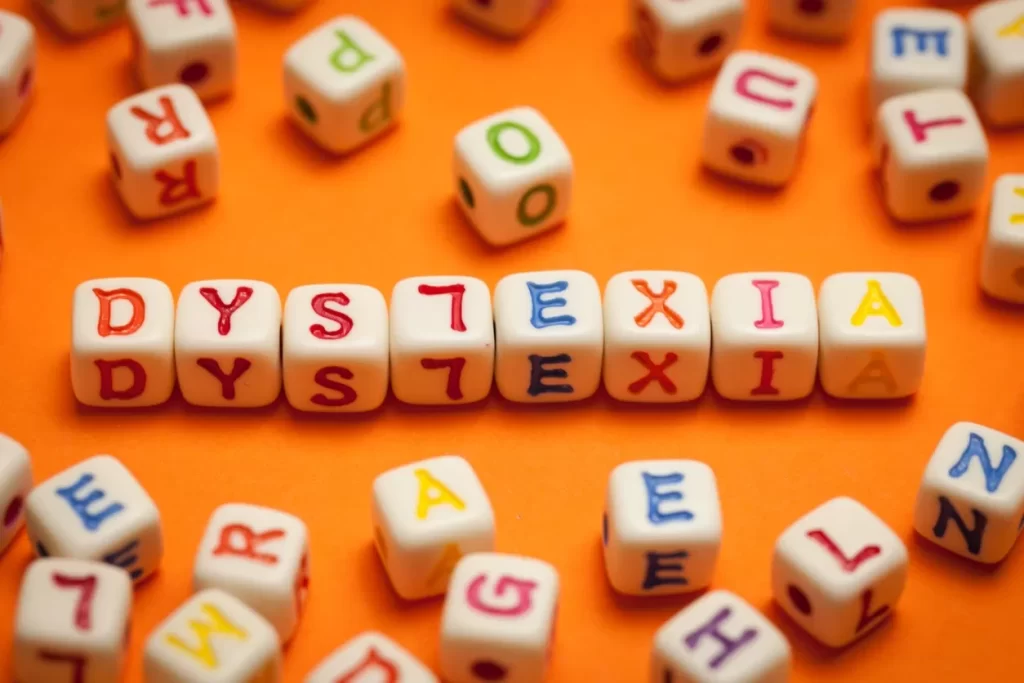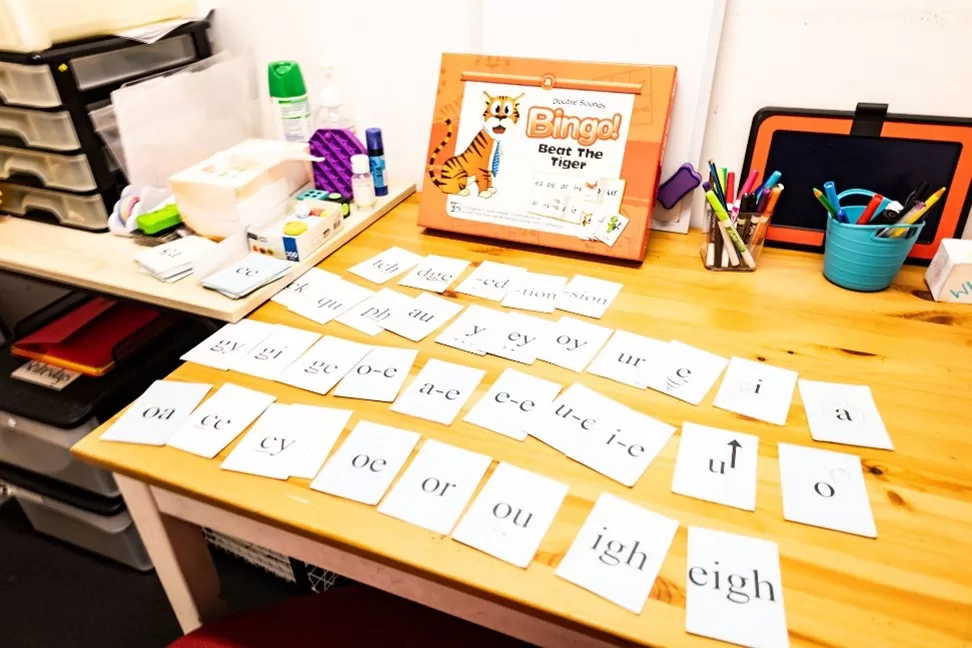
Dyslexia is a learning disorder that specifically affects a person’s ability to work with words, and includes reading, writing, spelling, speaking and comprehending what they’ve read. Other learning difficulties that students experience are Dysgraphia (hand writing) and Dyscalculia (maths).
Dyslexia – A learning difficulty specific to reading:
- Slow and labour-intensive reading
- Difficulty reading aloud
- Mispronounced words
- Problems retrieving words
- Problems writing and spelling.

To appreciate and understand the multisensory literacy and numeracy specialist lessons that are delivered, the following sections are an insight towards developing a better understanding using the multisensory approach.
Students begin school life learning the alphabet and numbers. The focus in Junior Primary School is learning to read, write, spell and count. They are taught basic maths using number sequences, addition, subtraction, multiplication and division.
From first year of school through to Year 2, there is a lot of guidance and support in lesson time when students are introduced to language, literacy and numeracy. Most children feel they are managing schoolwork and able to keep up with what is being taught in class during this time.
They appear to be reading. The readers have pictures, and the sentences are basic and repetitive.
However, they may not actually be reading. They may have been memorising the introductory readers with the minimal text and the pictures.
Students with learning difficulties begin to really notice that school is hard work all the time. There are emotions that parents try to deal with as best they can. Students at this stage are falling behind in class up to two years and may have dyslexia, dysgraphia and a difficulty with maths which is referred to as dyscalculia.
This diagnosis has absolutely nothing to do with intelligence.
These types of learning difficulties associated with language, literacy and numeracy is not something that younger students can eventually grow out of. The learning difficulties named above are a lifelong problem but they can get easier to manage with the right explicit teaching and support.
Support is available from specialist tutors who are trained and qualified to teach students in a specific multisensory way. Our focus is working together to improve reading, writing, spelling and maths to help students manage their dyslexia at school.
We use the basis of the Orton-Gillingham Multisensory Structured Language Approach through training undertaken with the Institute for Multisensory Structured Language Education.
This program is research based and internationally respected for its methods for remediating students with Dyslexia and other significant reading disabilities or delays.

This program is very effective in the long term and :
- Takes a student right back to the start and systematically rebuilds their phonics (letter-sound system).
- Uses the 26 letters in the English language and their 44 unique sounds.
- Uses tools and frameworks to continually refer back to spelling and grammar concepts.
Dyslexia is a term used to describe a Learning Difficulty.
Dyslexia is listed in the Australian Disability Act. Whilst it is classified as a disability, it is not recognised as such through the NDIS, and is therefore referred to the Education System we currently have in Australia. Once the school is made aware of an official diagnosis, the schools should help with a student’s learning plan and assist with providing extra aids in the classroom environment. The main concern is to put in place the things which will assist the student to be on the same level as those in class who are non-dyslexic.
Fortunately, more teachers are becoming aware of the frustrations dyslexics experience, and can provide some support in the classroom. Many schools have learning inclusion units that help facilitate extra times in exams, differentiated homework and/or a reduction in the amount required to be written for writing tasks. Speak to your school about any accommodations that they can help facilitate for your child.
Dyslexia is not about intelligence.
Students often feel like there is something wrong with them because they cannot understand and cannot perform tasks as easily as their peers at school and outside of school. This is because their brain processes language differently and it takes longer to acquire it. It is also a reason why it is important to gain a diagnosis, so that the student can understand they are dyslexic, what it means and what supports they can access to have the same chance as their non-dyslexic peers.
People with dyslexia often become upset, frustrated and embarrassed especially when they continually receive a low mark for their tests and exams which they know is not reflecting their true intelligence, knowledge and capabilities. Hence, the ability to produce assessment work in a variety of forms, including power point presentations and hands-on created work is important to explore.
What People Say
We have used PMB Services for the last 9 weeks, and they have been great- very professional and the outcomes that my son has achieved has been very positive. I would thoroughly recommend PMB Services 100% if you are looking for extra tutoring. 👏👏👍🏻
PMB Services has changed the view of learning for my son. His attitude to learning with PMB Services has given me the confidence he can achieve anything he puts his mind to. I would recommend any child in need of support to engaged with PMB Services
My daughter has been accessing PBT services for the past 3 years. Their staff are child-focused and very supportive, even making the time to attend school ILP meetings to support and advocate for my child, ensuring that all people involved in my child’s learning were on the same page and working towards the same goals.
Penny and her team help to build the kids skills and confidence. They work with them to build on the base knowledge and skills to help them to flourish!!!